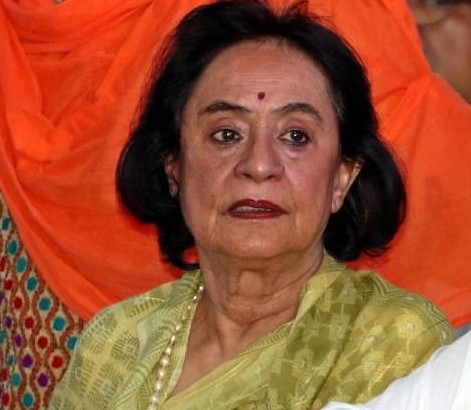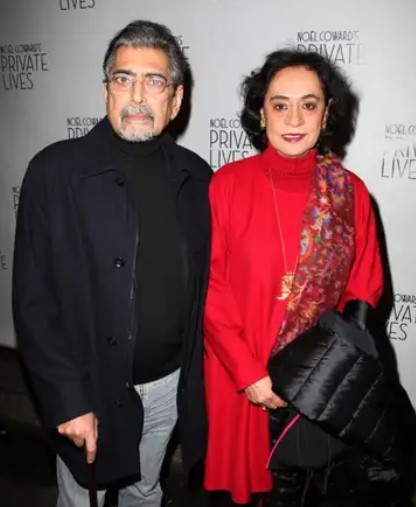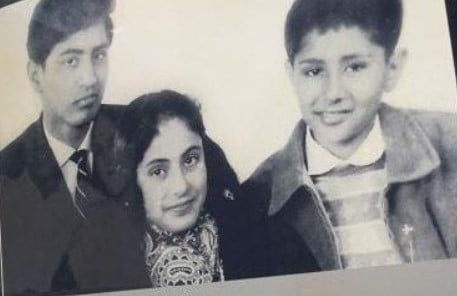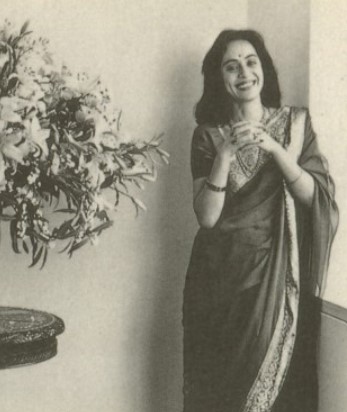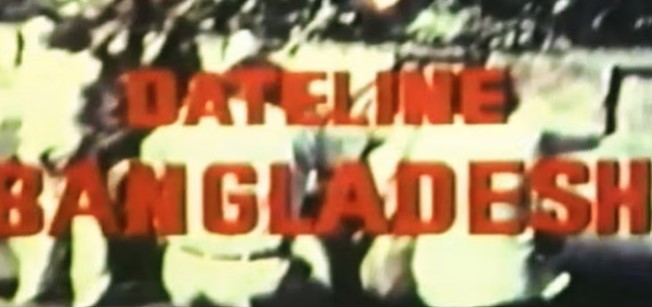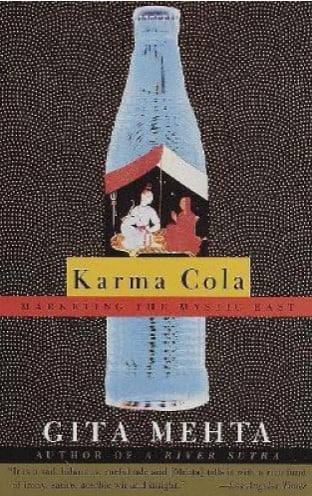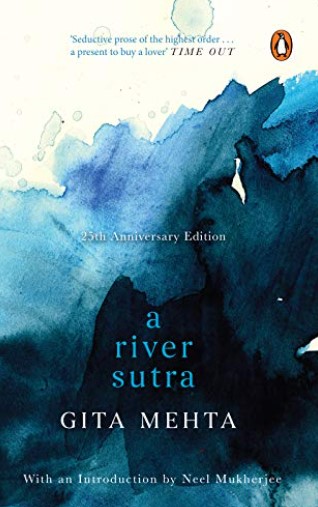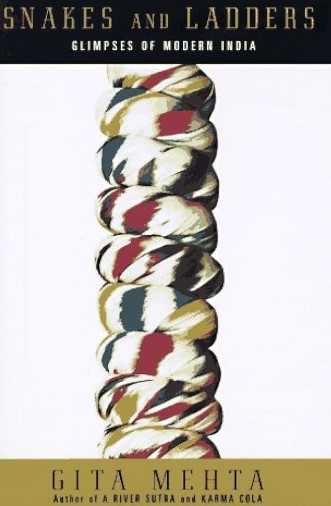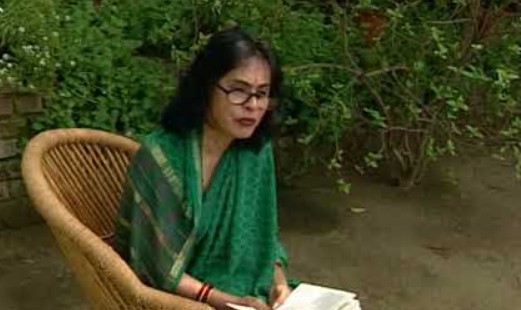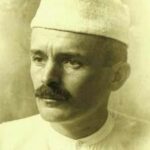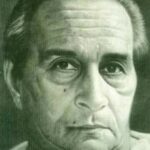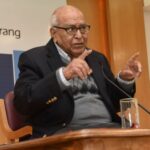Gita Mehta Age, Death, Husband, Family, Biography & More
Quick Info→
Hometown: Delhi, India
Age: 80 Years
Husband: Ajai Singh Mehta
| Bio/Wiki | |
|---|---|
| Other name | Gita Patnaik |
| Profession(s) | Author, Documentary filmmaker, Journalist, Director |
| Physical Stats & More | |
| Eye Colour | Black |
| Hair Colour | Black |
| Career | |
| Notable Works | • 1979: Karma Cola • 1993: A River Sutra • 2006: Eternal Ganesha |
| Award | She was the recipient of the Lifetime Achievement award for publishing books in India, the UK, and the United States. |
| Personal Life | |
| Date of Birth | Year, 1943 |
| Birthplace | Delhi, British India |
| Date of Death | 16 September 2023 |
| Place of Death | Delhi |
| Age (at the time of death) | 80 Years |
| Death Cause | Old age ailments [1]India Today |
| Nationality | American |
| Hometown | Delhi, India |
| School | She went to boarding school age the age of three. [2]Random House |
| College/University | Girton College, University of Cambridge, England [3]Good Reads |
| Controversy | In 2019, she refused to accept Padma Shri award by the Government of India. [4]The Hindu |
| Relationships & More | |
| Marital Status (at the time of death) | Widow |
| Affairs/Boyfriends | Ajai Singh Mehta (Sonny Mehta) |
| Marriage Date | December 1965 |
| Family | |
| Husband/Spouse | Ajai Singh Mehta (Sonny Mehta) (d. 2019) (journalist and businessman)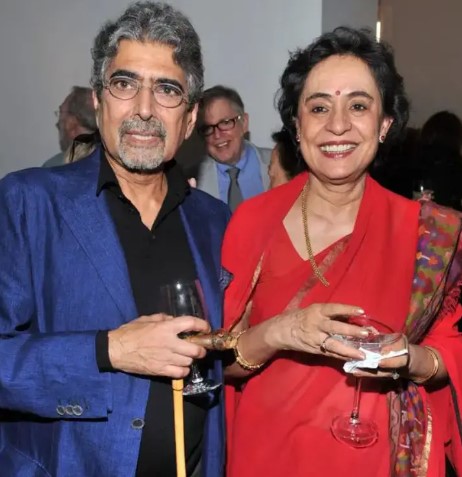 |
| Children | Son- Aditya Singh Mehta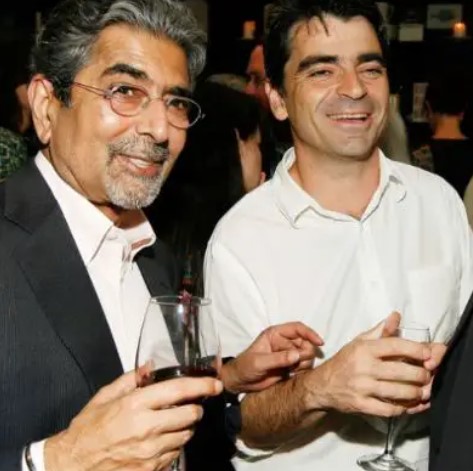 |
| Parents | Father- Bijayananda Patnaik (politician, aviator, and businessman)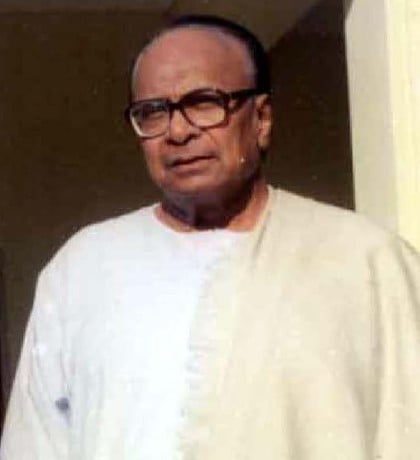 Mother- Gyan Patnaik (commercial pilot of India) 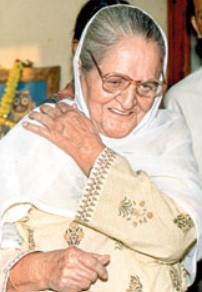 |
| Siblings | Brothers- 2 • Naveen Patnaik (Younger) (14th Chief Minister of Odisha) 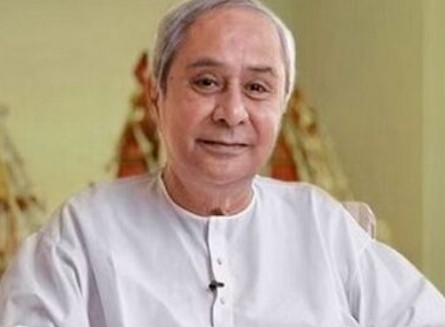 • Prem Patnaik (Elder) (businessman) 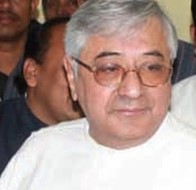 |
| Other Relatives | Father-in-law- Amrik Singh Mehta (Indian diplomat) |
Some Lesser Known Facts About Gita Mehta
- Gita Mehta was an Indian born American author, journalist, and documentary filmmaker whose writings mainly focused on wars and conflicts including the 1971 Bangladesh Liberation War. She was the author of five books which were translated into over 21 languages. She focussed on Indian issues which were intended to interpret the country for a vast Western audience.
- She belonged to an Odia family. Once, in a media conversation, Gita Mehta revealed that she was sent to a boarding school at the age of three as her father was detained by the Britishers, and her mother was busy trying for his release. She said,
I was sent off to boarding school at the age of three, because my mother was racing around trying to get my father out of jail.”
- When she was studying at Cambridge, Gita Mehta met Sonny Mehta and got married to him in 1965. The couple moved to New York after their marriage and shifted to London in 1987. Her husband was the editor-in-chief of Alfred A. Knopf and chairman of the Knopf Doubleday Publishing Group. Her father-in-law, Amrik Singh Mehta, was an officer in the Royal Indian Air Force and was one of the first Indian diplomats after India’s independence.
- Gita Mehta is known for producing and directing many documentaries for British, European, and American television channels. She served as a reporter for a US television network named NBC from 1970 to 1971.
- Reportedly, she was a correspondent from India who covered the live Bangladesh war in 1971. In 1972, Gita Mehta wrote and directed a documentary film titled ‘Dateline Bangladesh,’ which was based on this war. The film was released in theatres across India and several other countries.
- In her first book, “Karma Cola” (1979), Gita Mehta talked about those Western people who thought that they could find instant spiritual knowledge and enlightenment by going to India and meeting a guru.
- In 1989, in her fictional book “Raj,” she wrote a story about a princess named Jaya Singh, the daughter and wife of Indian kings who were the rulers of two independent kingdoms of India.
- In 1993, her second fiction book, “A River Sutra,” was a collection of short stories that explained Indian life to Westerners. In this book, Gita Mehta mixed Indian mythology with tales of love in different ways. The book was about a government worker who felt unhappy with life. He then visited six Indian pilgrims situated on the banks of India’s most sacred river and learnt important lessons about life.
- Gita Mehta’s book “Snakes and Ladders” (1997) was a bunch of essays about India and life in the country. She released this book on India’s 50th Independence Day.
- Once, in a media conversation, Gita Mehta said that she wanted to make modern India accessible to Westerners and new Indian generations through her books. She said,
I wanted to make modern India accessible to Westerners and to a whole generation of Indians who have no idea what happened 25 years before they were born.”
- Later, her books were translated into 21 languages and had been on the best sellers list in Europe, the US, and India. Her fiction and non-fiction literary works focussed primarily on India’s culture and history, especially how people in the West see it.
- Gita Mehta declined the Padma Shri award, which was bestowed on her by the Narendra Modi Government in 2019. She explained the reason for rejecting the award just before the 2019 general elections. [5]India Today Gita Mehta said,
I am deeply honoured that the government of India should think we worthy of a Padma Shri but with great regret I feel I must decline as there is a general election looming and the timing of the award may be misconstrued, causing embarrassment both to the government and myself, which I would much regret.”
References/Sources:

